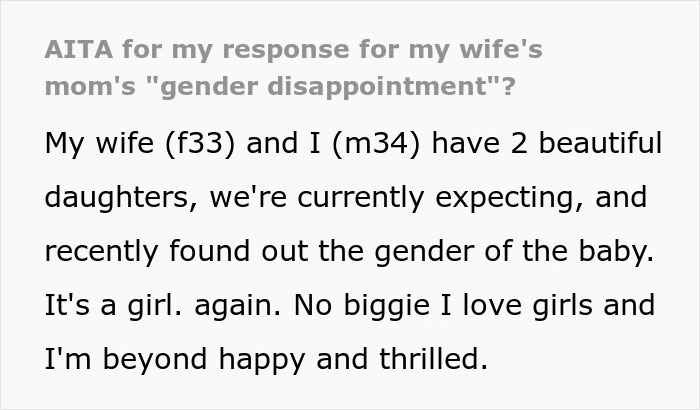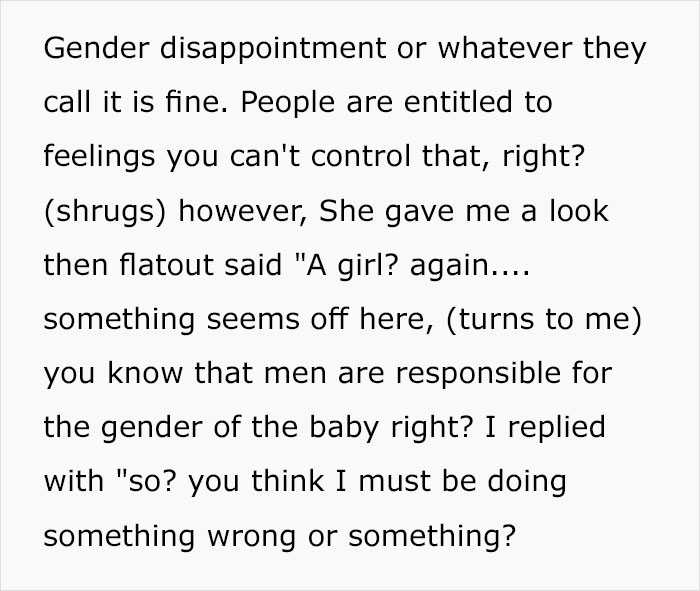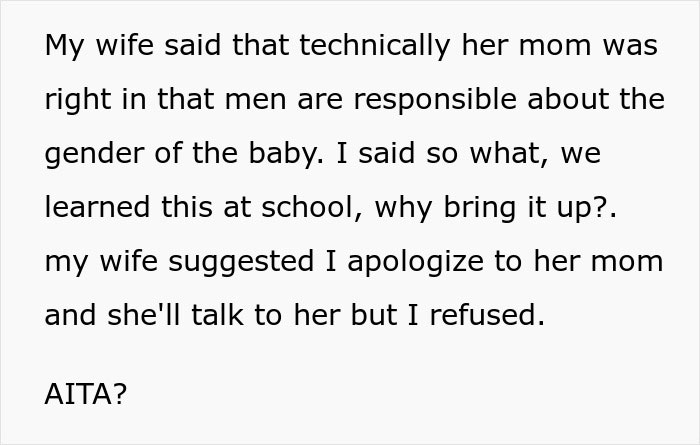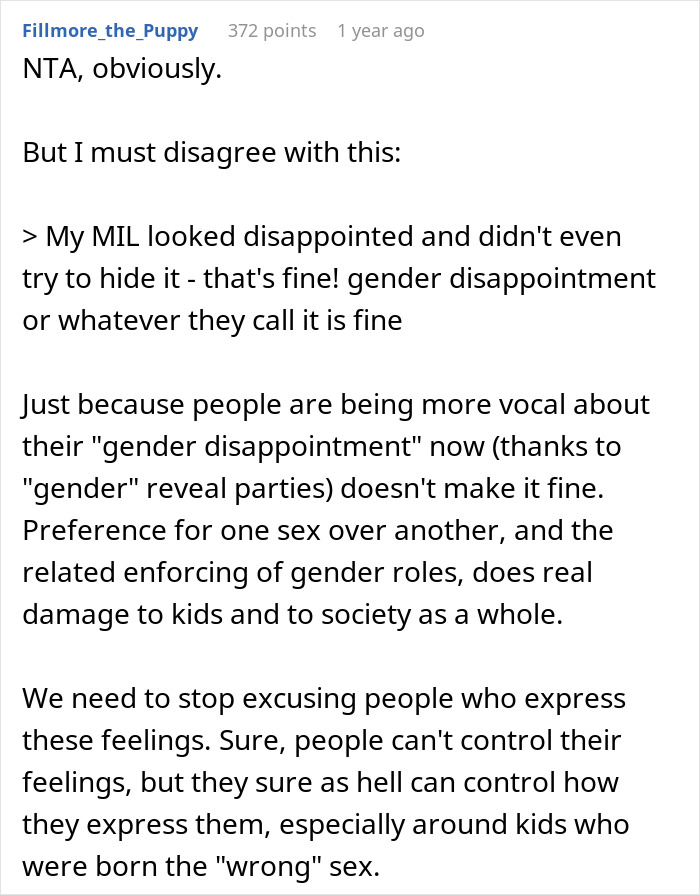Finding out the biological sex of a baby can be an exciting milestone for the parents-to-be. After the fact, they will likely start envisioning their life together—cuddling a baby boy or playing catch with a little girl. However, if the gender reveal doesn’t match the preference one had, it may bring up some conflicting emotions.
Just like what happened to this mother-in-law, who was rooting for a grandson but instead found out she was going to have granddaughter No. 3. Being majorly disappointed, she started putting the blame on the father’s DNA, causing family drama to ensue.
Scroll down to find the full story and a conversation with licensed clinical psychologist Emma Basch, who kindly agreed to answer some of our questions about gender disappointment.
The gender reveal of a baby may bring unexpectedly conflicting emotions for some people

Image credits: marccalleja/Envato elements (not the actual photo)
Just like what happened to this mother-in-law, who started blaming the father for giving her ‘another’ granddaughter





Image credits: alinabitta/Envato elements (not the actual photo)


Image credits: _Elite2017_
Gender disappointment involves feelings of sadness and distress
For parents-to-be, gender disappointment involves feelings of sadness and distress when the biological sex of the baby is different than they hoped for. It’s not something that gets a lot of public attention, but it’s still pretty common.
On the other hand, this rarely happens to other family members—in this case, the mother-in-law—but licensed clinical psychologist Emma Basch tells Bored Panda that it’s certainly possible.
“Gender disappointment is a shorthand way of describing numerous reasons why someone has a preference or feels disappointment about the sex of their baby, and it seems plausible that nonparental family members could feel this too.”
There are several reasons a person may be going through such emotions, including feeling grief over how they envision life with the baby-to-be versus how it’s really going to look. “For example, if someone has a wonderful relationship with their sister and is hoping to recreate this by having a family with two girls, they may experience sadness over having male children,” Basch explains.
Alternatively, some parents do not want to replicate the family composition they grew up with and feel disappointed when they learn that the sex of the baby recreates it. It can also come from past experiences and fear. “For example, I’ve worked with several female survivors of sexual trauma who felt a lot of fear after finding out they were pregnant with girls,” the psychologist said.
“Gender disappointment can also be a product of deeply gendered schemas. For example, if you (or a family member) believe that only certain experiences can come from raising a girl vs. raising a boy, you may experience gender disappointment if you feel you won’t have that gender composition in your family.”
“I would encourage people not to dismiss their feelings”
Basch also kindly shared some advice for people who might be struggling with such conflicting emotions. “I would encourage people not to dismiss their feelings,” she said. “Many people feel shame about their gender disappointment or feel like they aren’t supposed to feel that way.”
She further suggests, “Find an appropriate outlet of support, likely a therapist, who can help you understand and work through what you are feeling. If you are a family member (say, a grandparent), make sure you are processing your disappointment with an appropriate outlet (not the person/persons having the child).”
Psychotherapist Diane Ross Glazer, PhD, reassures that gender disappointment typically only lasts until the day the child is born, after the parents finally get to meet them. In fact, oxytocin, the hormone in the brain released during labor, helps to fall in love with the infant.
The readers supported the father





















